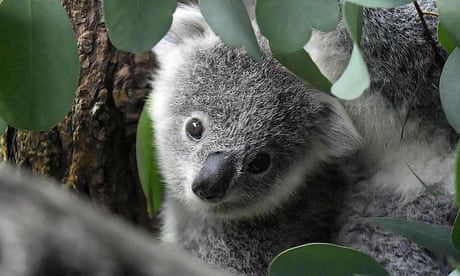- by foxnews
- 23 May 2025
Koala IVF could help save species from extinction
Koala IVF could help save species from extinction
- by theguardian
- 13 Apr 2022
- in news

Freezing koala sperm could become a key part of a strategy to save koalas from extinction by 2050.
An estimated 64,000 koalas were killed when 5.5m hectares were ravaged by the 2019-20 black summer bushfires in New South Wales.
The federal government listed the species as endangered in February and released a national plan to boost their numbers on the east coast.
The research published in the journal Animals on Wednesday found that biobanking would allow the storage of live koala genes by freezing sex cells such as sperm.
They also noted the strategy would be five to 12 times cheaper than current captive koala breeding methods and would not compromise their genetic diversity.
Nearly $20m will go to helping local communities conserve koalas, while a further $23.2m will go to koala support programs including relocation and rehabilitation.
Australia has the highest rate of species extinction in the world, with the climate crisis expected to raise the risk of further annihilation.
Koala numbers have rapidly declined since 2012 when the species was listed as vulnerable to extinction.
The federal environment minister, Sussan Ley, promised this month to establish a new national team to oversee recovery efforts for the species.
Ley said the recovery plan would support protection and population recovery, and tackle other threats including disease.
She also said it would coordinate action across all levels of government and the community, but the Queensland government has not sanctioned the plan.
The state environment minister, Meaghan Scanlon, wrote to her federal counterpart less than two weeks before the announcement saying the federal government had promised $50m for koala conservation but there had been no allocation to the states.
- by foxnews
- descember 09, 2016
United Airlines flight returns to Hawaii after concerning message found on bathroom mirror; FBI investigating
United Airlines Flight 1169 to Los Angeles returned to Hawaii after a "potential security concern" aboard the plane. The FBI and police are investigating.
read more


